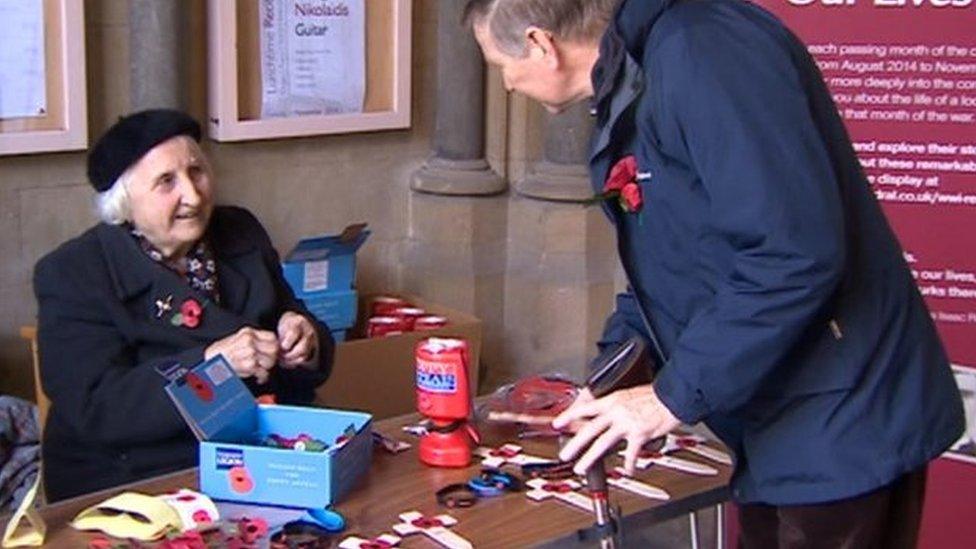War horse charity retains Salisbury's founder's 'compassionate ethos'
- Published
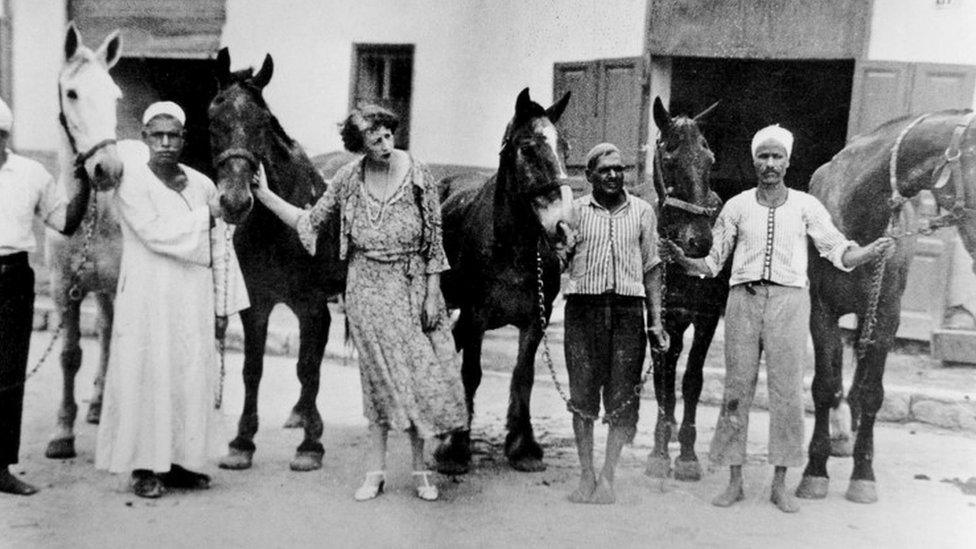
Ms Brooke bought thousands of former war horses in Egypt in the 1930s after a fundraising appeal
A global charity, founded by a Salisbury woman who rescued emaciated former war horses in the 1930s, said it was still motivated by her "compassionate ethos".
Dorothy Brooke was living in Egypt after World War One and saw hundreds of abandoned and malnourished animals wandering the streets.
She established the Old War Memorial Hospital in Cairo in 1934 and, with generous donations from the British public, purchased 5,000 horses to care for.
Her legacy continues today as the charity Brooke, external, which said it now worked with communities in 13 countries across Africa, Asia, Latin America and the Middle East.
The charity, which is celebrating its 90th anniversary, said it was helping improve the lives of working horses, donkeys and mules which were the "backbone" of thousands of communities.
"Our whole ethos is about compassion and sustainability," said Brendon Elliott, head of international fundraising.
"Often there might be a vet locally, but they've never been trained in equine specific medicine.
"Or people resort to traditional healers because there are no services available.
"Unfortunately, this can lead to further problems for the animals and exacerbate existing health problems."
The charity trained local people, giving them the specialised knowledge to look after horses, Mr Elliott said.
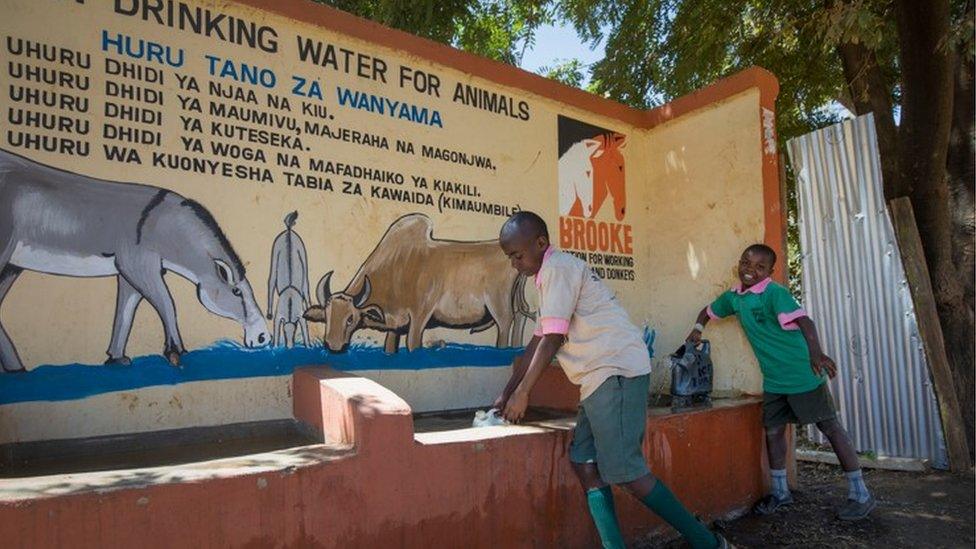
The Brooke charity has set up educational programmes, such as a donkey care club in Kenya
Ms Brooke and her husband Geoffrey relocated to Cairo in 1930 after he was appointed to command the British Cavalry Brigade in Egypt.
Abandoned horses
She loved horses as a child and later became an accomplished horse woman, so well equipped to understand the plight of the animals she fostered.
The abandoned horses she found in Cairo had been born in the UK and shipped overseas to serve in WWI, but never returned home afterwards.
The Brooke charity said the official reason given at the time was "lack of transport", but it was a commonly held view they were sold to horse traders as the easiest option after the war.
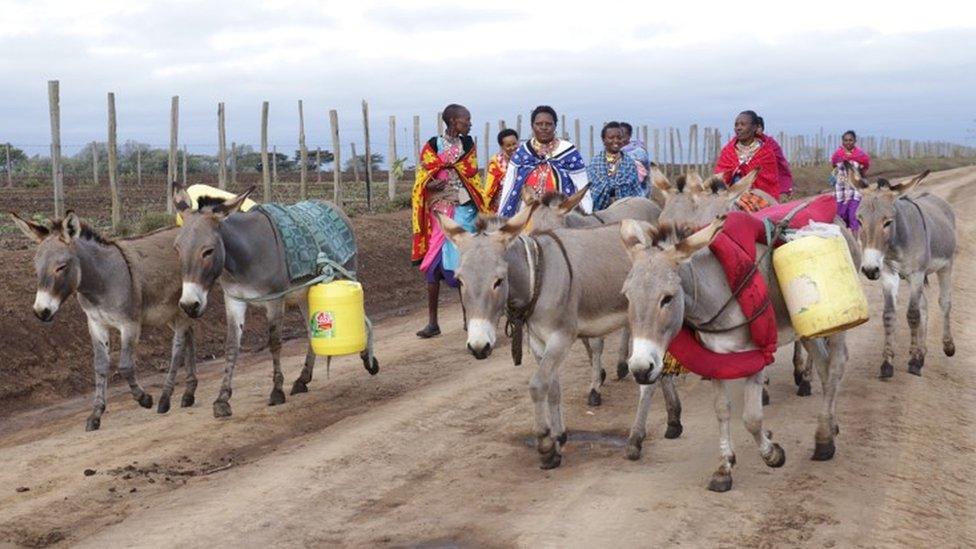
The charity says its projects give people the opportunity to work their way out of poverty
The first horse Ms Brooke adopted was an emaciated old chestnut horse with a clear army brand on his near quarter, whom she named Old Bill.
"There were lots of old horses," said Mr Elliott, adding "what Dorothy found was that many were just bags of bones".
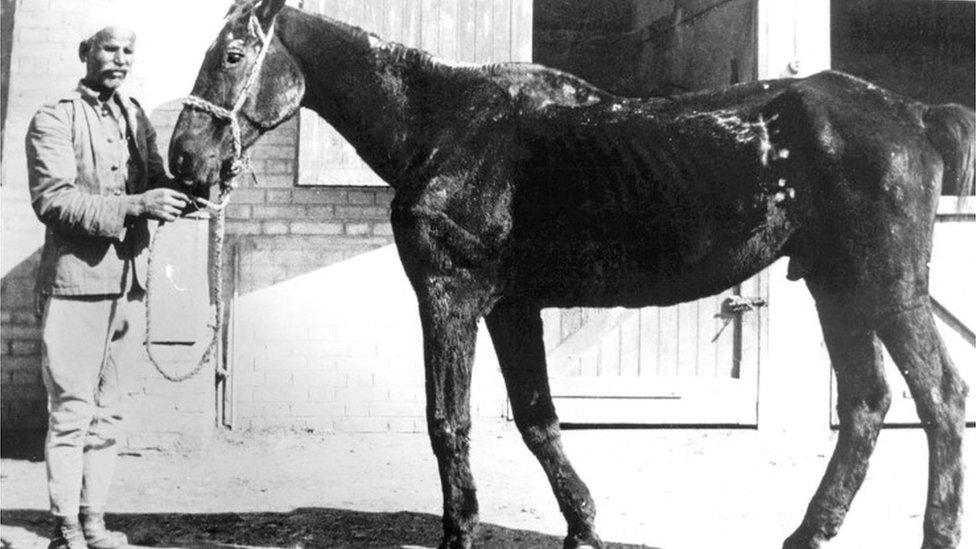
Former war horse Old Bill was rescued by Ms Brooke in 1931
Ms Brooke wrote to The Morning Post (now The Daily Telegraph) to organise a fundraising appeal, which went on to raise £20,000.
The donations helped fund Cairo's Old Memorial Hospital and the purchase of thousands of former war horses.
"Many were euthanized, but at least during the final part of their lives, they enjoyed some green fodder and a little bit of comfort; particularly for the toil they had endured for our countries," Mr Elliott said.
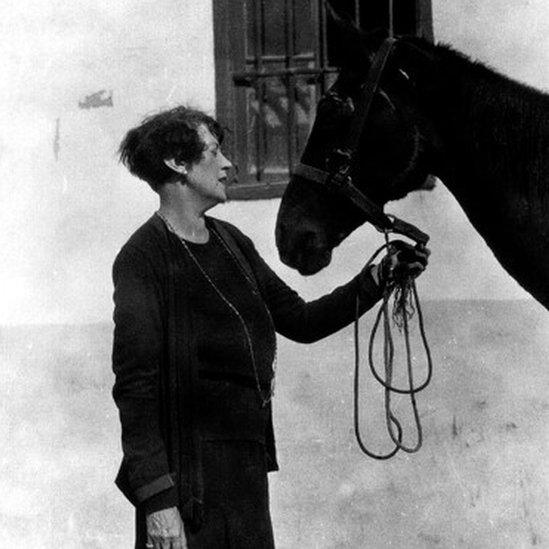
Dorothy Brooke loved horses as a child and became an accomplished horsewoman before living in Cairo
By 1938, Ms Brooke had established the first shade shelter and water troughs in Cairo, and the first motorised ambulance started to operate.
She continued to work for her charity until her death in 1955. Family members have continued her legacy.
A new generation of supporters was inspired with the publication of her diary, For Love of Horses, published in 1960.
Supporters include Queen Camilla who became Brooke's president in 2006 and has travelled the world to see its work, said the charity.
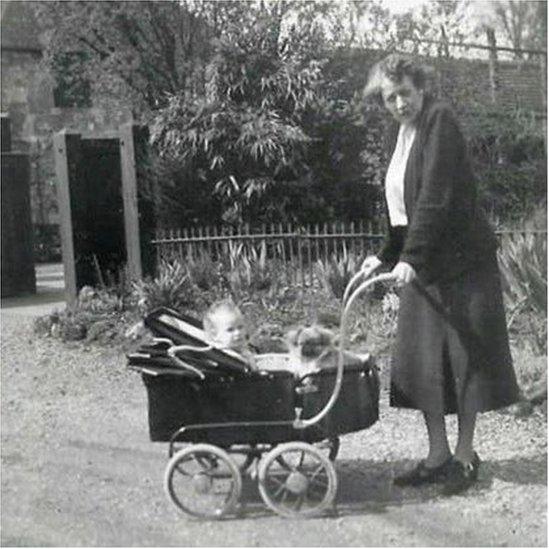
"Granny Brooke passed away in 1955. I remember her only quite fleetingly," said granddaughter, Ann Searight, pictured here as a baby with her in 1943
Brooke now reaches 1.4 million working animals directly and 4.2 million through advocacy work.
Ms Brooke was honoured in 2020 with a blue plaque in Salisbury, where she lived with her husband Brigadier Geoffrey Brooke from 1939 until her death in 1955, aged 71.
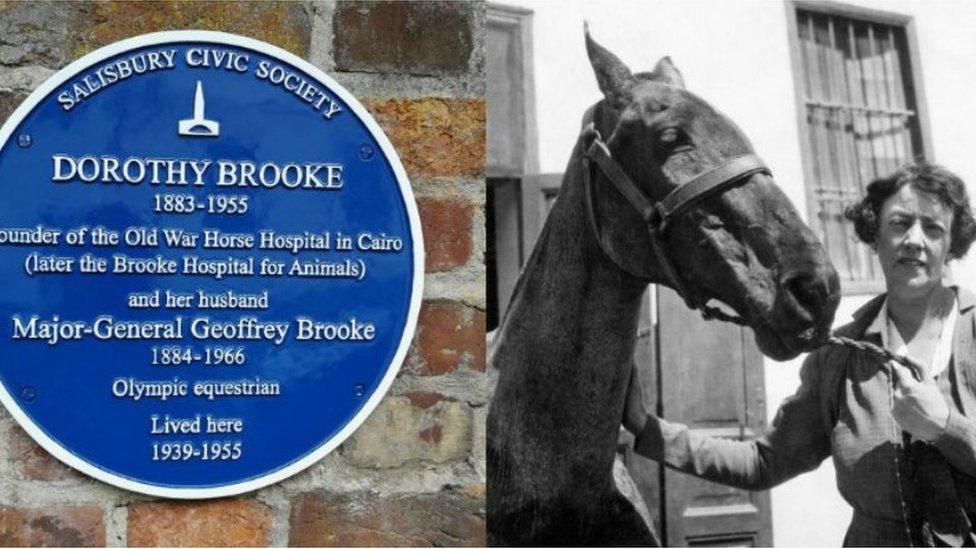
Ms Brooke is remembered in Salisbury, where she lived from 1939 until her death in 1955
Ms Brooke's granddaughter Ann Searight has hazy but fond memories of her.
"I know that my grandmother would be amazed by the organisation that bears her name today, and by everything it has grown into," she said.
"She would be thrilled by the scope and the depth of Brooke's activities, and by the enormous impact that its work is having on the lives of both animals and people."

Follow BBC Wiltshire on Facebook, external, X, external and Instagram, external. Send your story ideas to us on email, external or via WhatsApp on 0800 313 4630, external.
Related topics
- Published21 February 2024
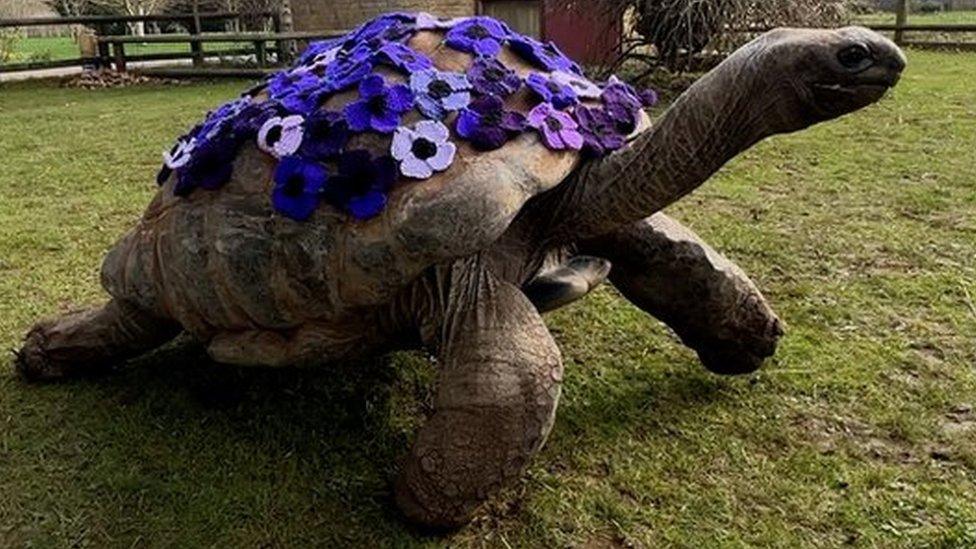
- Published16 September 2023
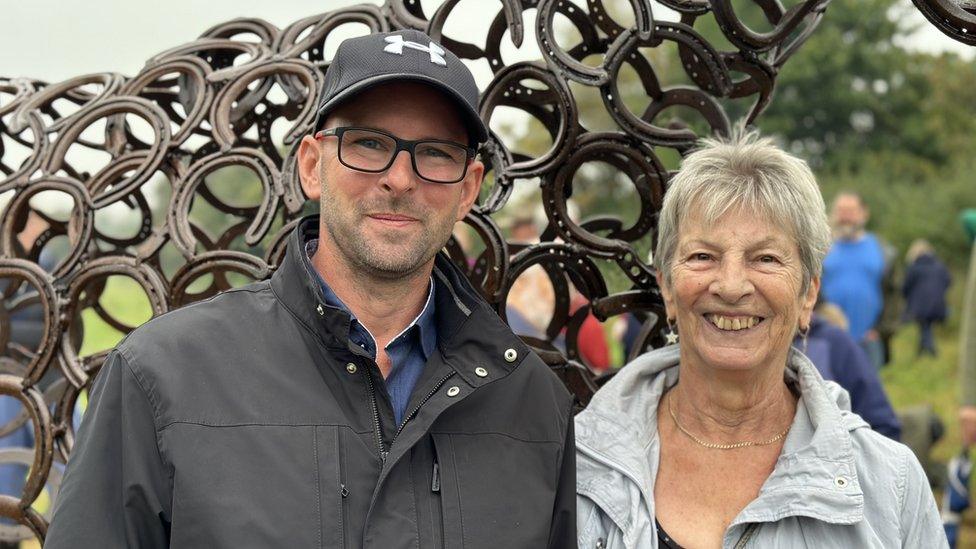
- Published19 May 2019
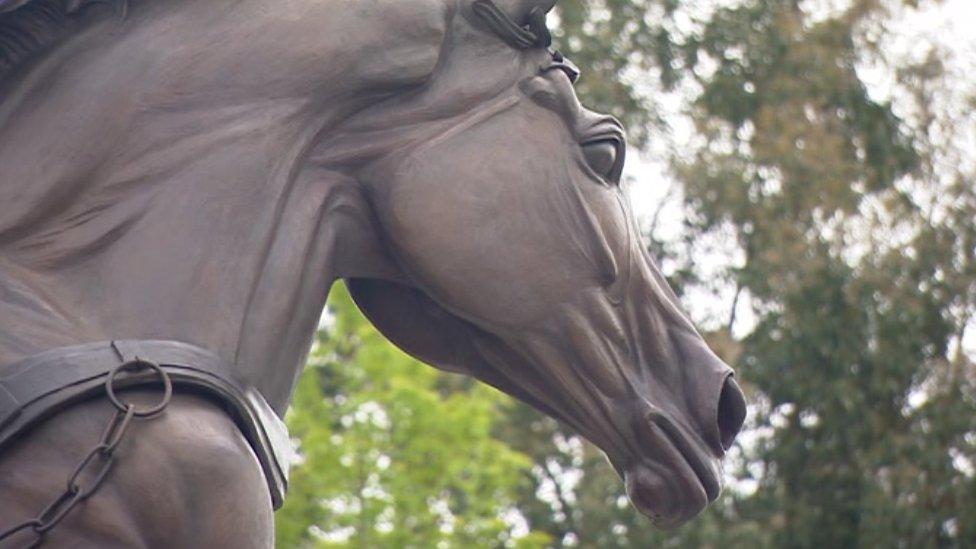
- Published23 October 2015
